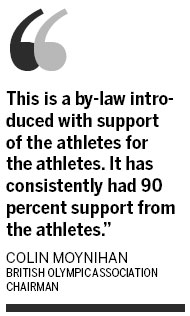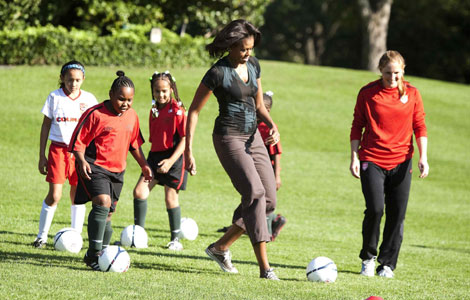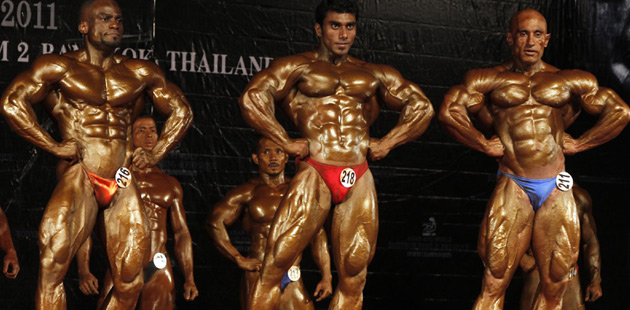Britain to stick to doping ban law despite ruling
Updated: 2011-10-08 08:07
(China Daily)
|
|||||||||||
LONDON - Britain will retain a by-law preventing its athletes found guilty of willful doping from competing in any Olympics, British Olympic Association chairman Colin Moynihan said on Thursday.
The Court of Arbitration for Sport (CAS) earlier cleared the way for several dozen former doping offenders to compete at next year's London Games after dismissing the validity of an International Olympic Committee (IOC) rule banning them.
The IOC Rule 45 was introduced in 2008 and banned athletes, including American Olympic 400 meters champion LaShawn Merritt, from participating at the next Games if they have been suspended for six months or longer.
The BOA said its by-law, introduced in 1992, was an eligibility rule and not a sanction like the IOC case, so the CAS decision was not binding on Britain.
It also said its by-law, unlike the IOC's regulation, provided an avenue for appeal to an independent tribunal - a course of action taken by sprinter Dwain Chambers in 2008.

"It is tough but it is fair. It has a strong appeal mechanism," Moynihan told a news conference. Fundamentally the BOA by-law addresses eligibility and is not a sanction."
British sportsmen like cyclist David Millar, who said the CAS ruling was a "good thing", and Chambers have fallen foul of the by-law, but the BOA is confident it would win a case if either of them went to CAS because of the distinction that not being picked is different from being banned.
Chambers, who served a two-year drug ban, challenged the BOA in the High Court in 2008 in a bid to run at the Beijing Olympics but failed in his attempt to have it overturned.
"This is a by-law introduced with support of the athletes for the athletes. It has consistently had 90 percent support from the athletes," Moynihan said.
He showed a letter the BOA had received from the World Anti-Doping Agency (WADA) saying the association's anti-doping laws complied with the global standard.
The BOA also said it had written to the IOC requesting confirmation that the CAS decision "in no way impacts the autonomy and ability of individual National Olympic Committees to determine eligibility standards for athletes and coaches who may seek to represent their countries in IOC-sanctioned events such as the Olympic Games."
CAS said its ruling on the IOC case was not in compliance with WADA's code.
Moynihan said the IOC would be hugely disappointed by the CAS ruling. "It is a sorry day for the International Olympic Committee," he said, adding the BOA is pondering extending the ban to athletes caught up in match-fixing - not just doping.
Former doper Millar, banned from competing in the Olympics by the BOA, said lifetime bans for a first offense "does not encourage rehabilitation nor education, two things that are necessary for the future prevention of doping in sport.
"Every doping case is different, as is every human being, we must not forget this. We expect fairness to be an integral part of the sports we watch, and yet fairness can be hard to find in the punishments of those athletes who make mistakes.
"I hope this decision (by CAS) will pave the way for the development of global sports, and to creating a system that all athletes and sports fans can understand and believe in."
However, the BOA said 90 percent of British athletes supported a life ban on those found guilty of willful doping.
Five-time Olympic rowing gold medallist Steve Redgrave said he was fully supportive of the BOA's stance and hoped the by-law would be in place for another 100 years.
Reuters
- 35 killed in north China expressway crash
- Negligence cited in subway accident
- Jobs' biography rushed into print
- Tourism sees surge for National Day
- Forces assault on Gadhafi hometown
- Two Tibetans injured in self-immolation
- 'Golden Week' disappoints property developers
- Liberian, Yemeni women win Nobel Peace Prize
Hot Topics
Libya conflict, Gaddafi, Oil spill, Palace Museum scandal, Inflation, Japan's new PM, Trapped miners, Mooncake tax, Weekly photos, Hurricane Irene
Editor's Picks

|

|

|

|

|

|






